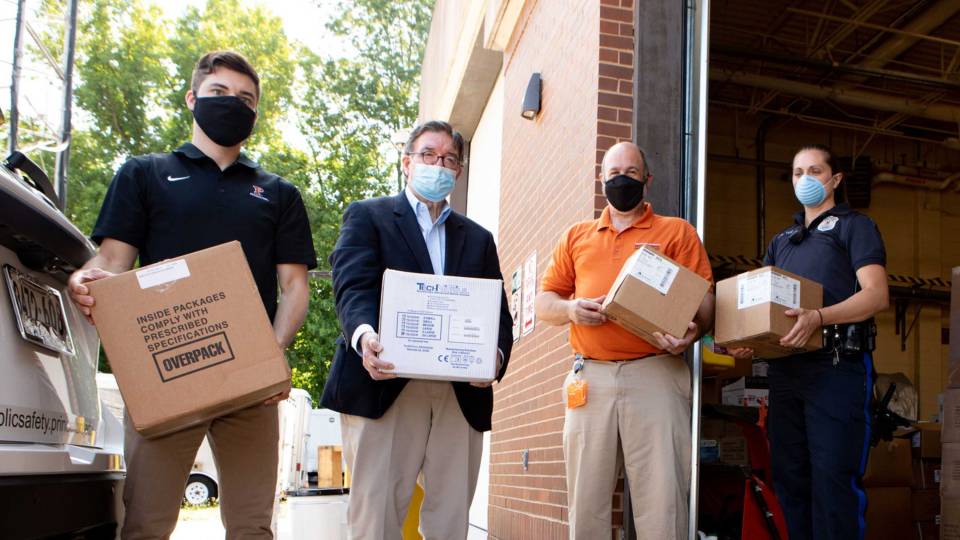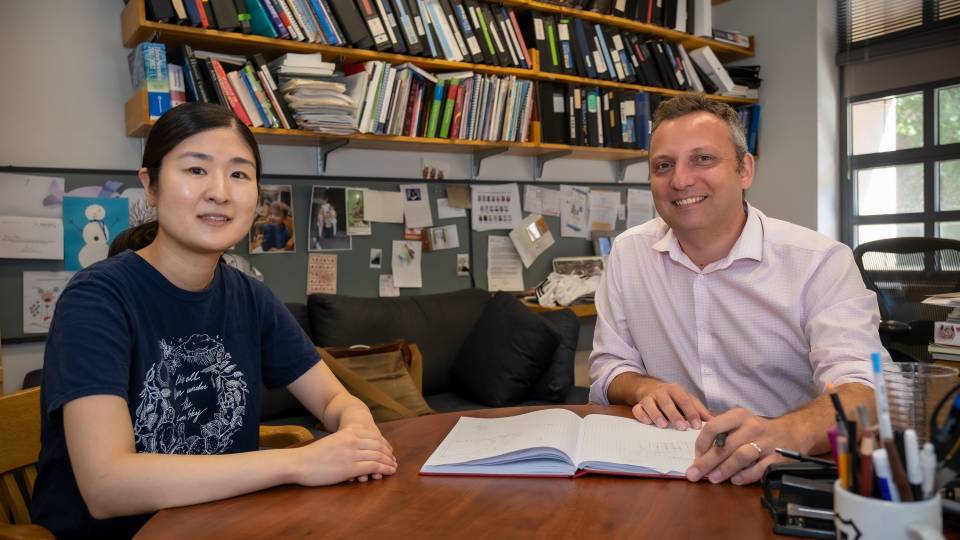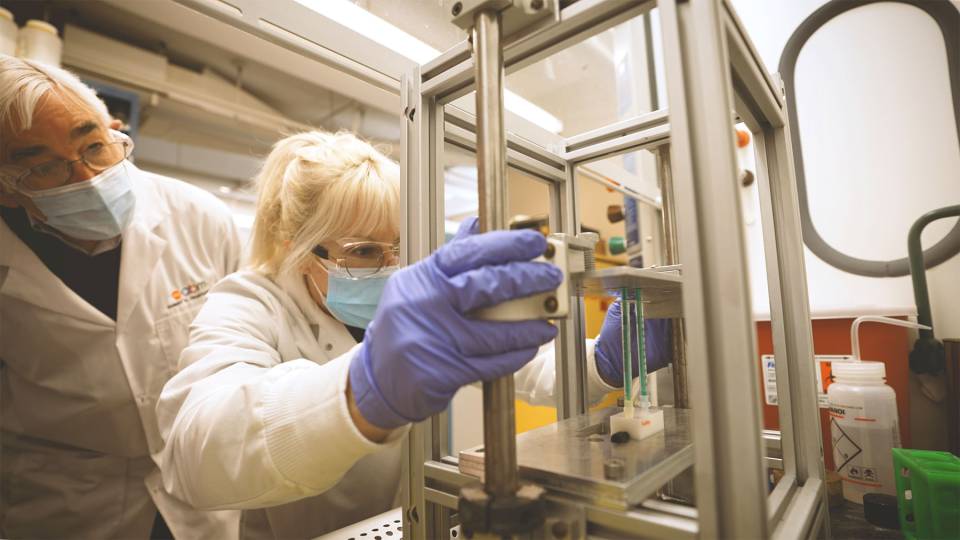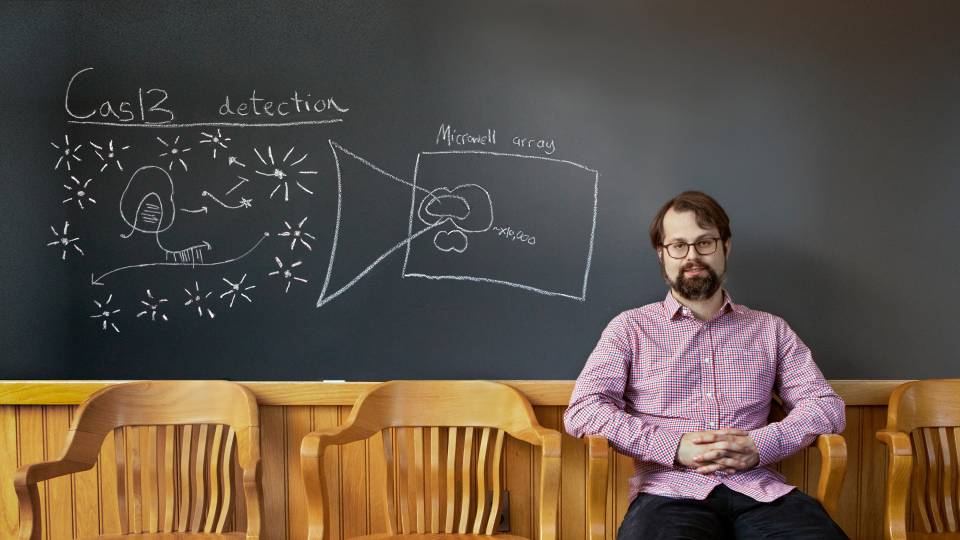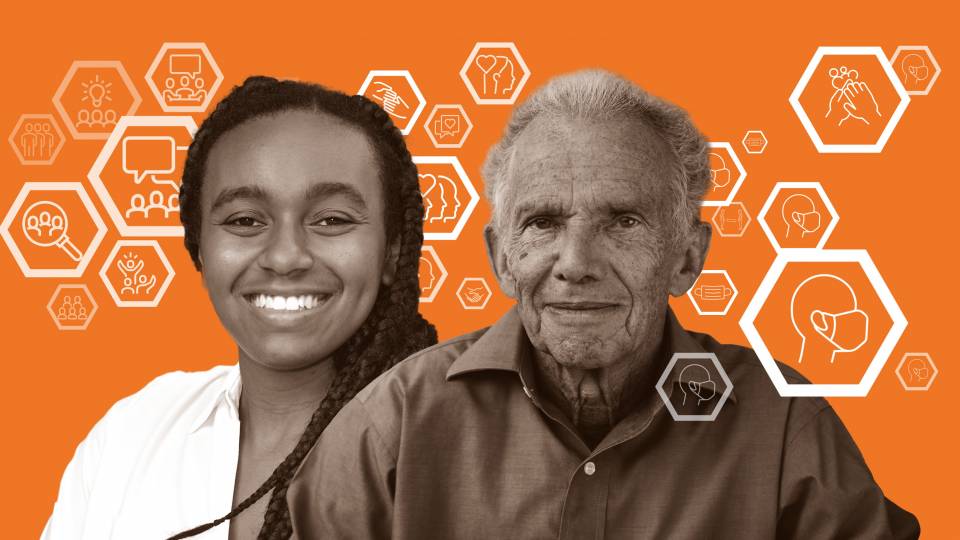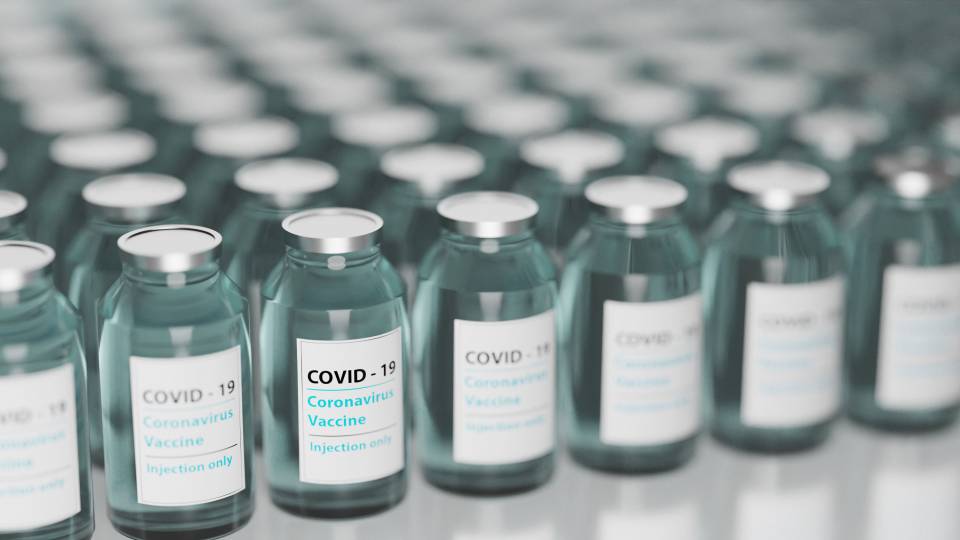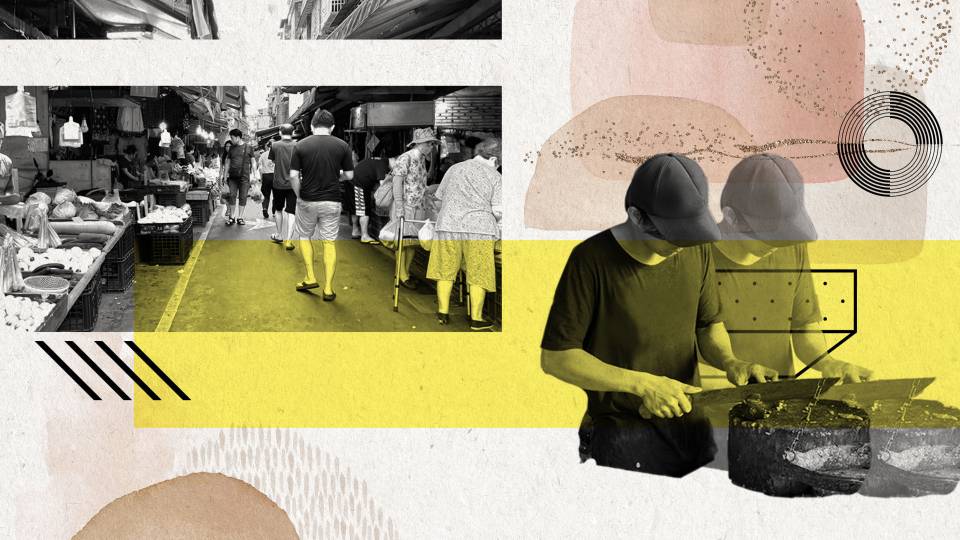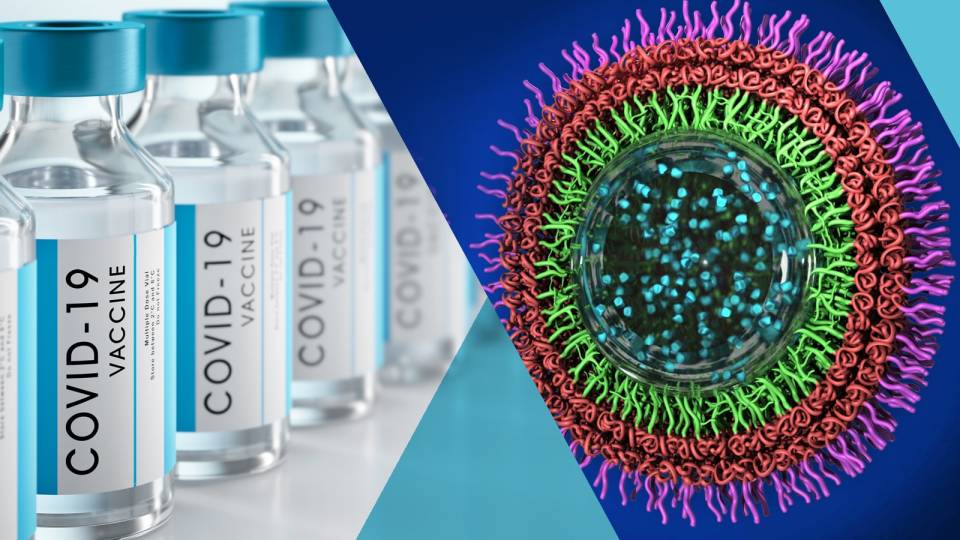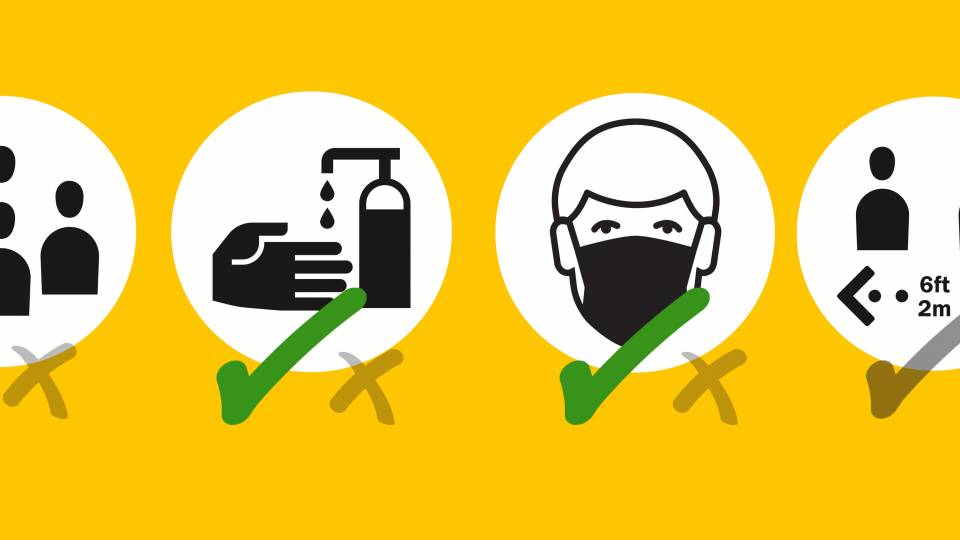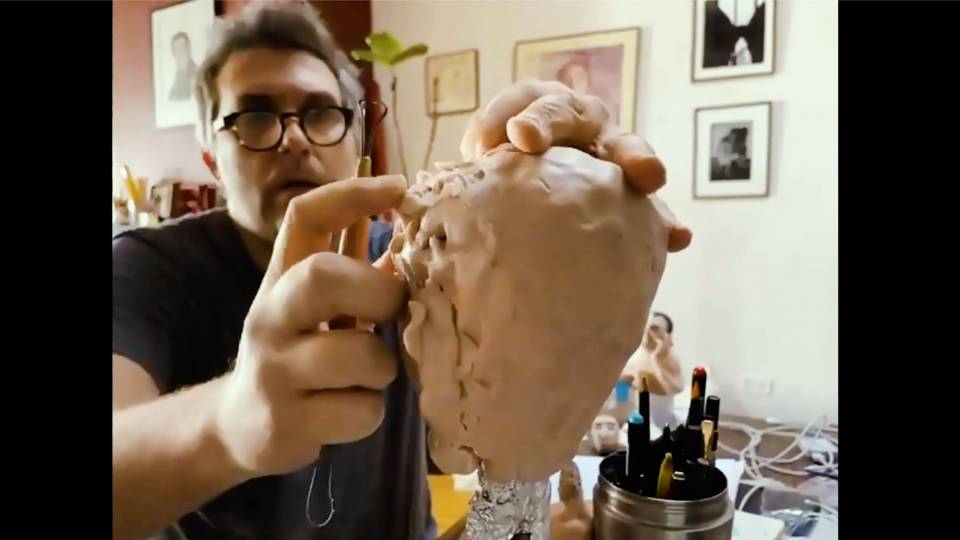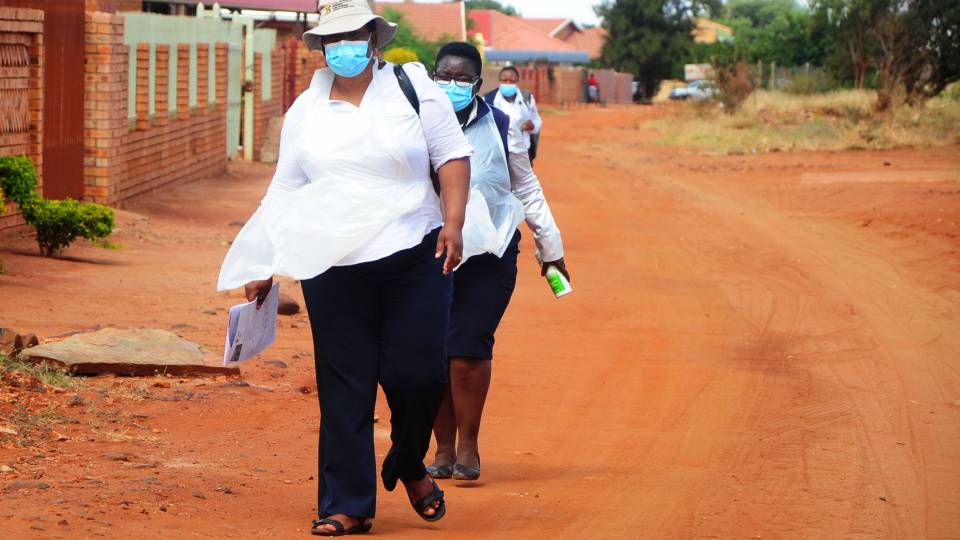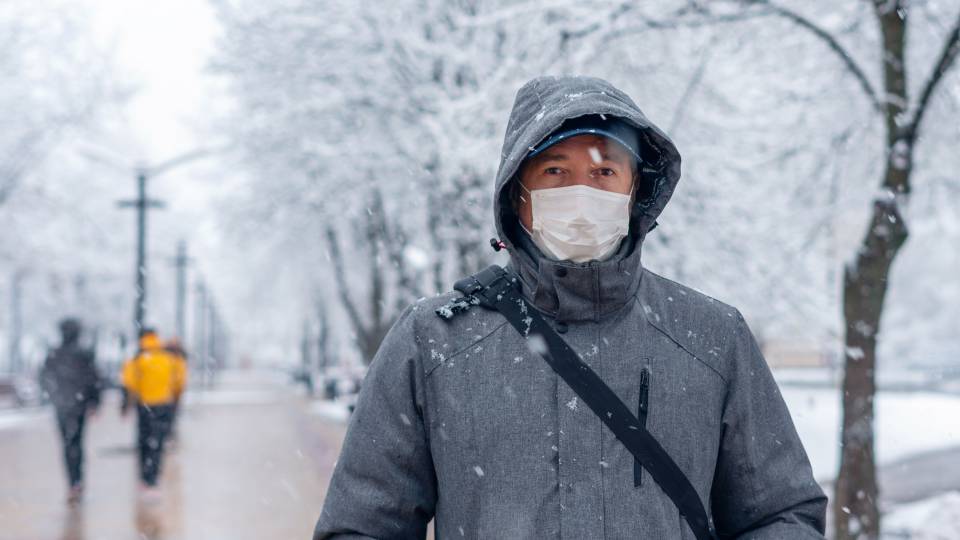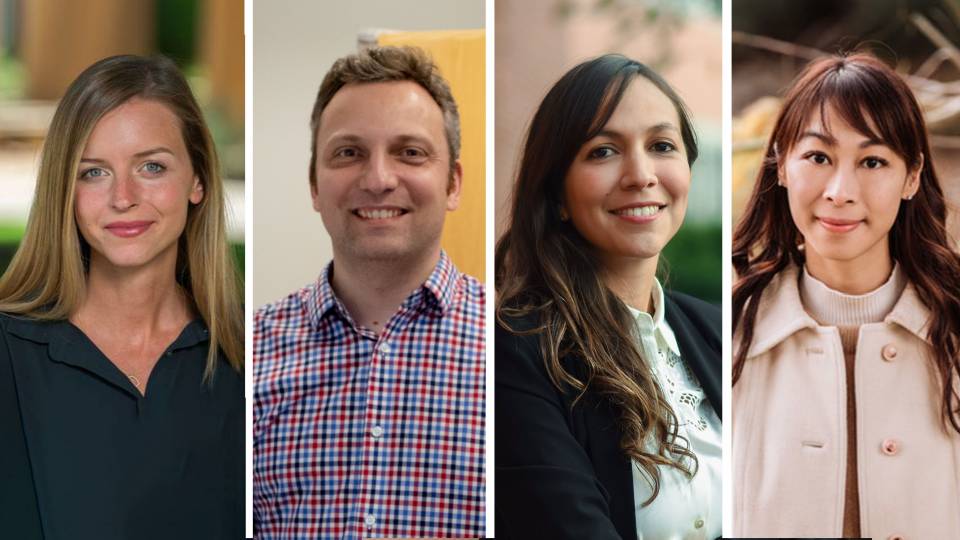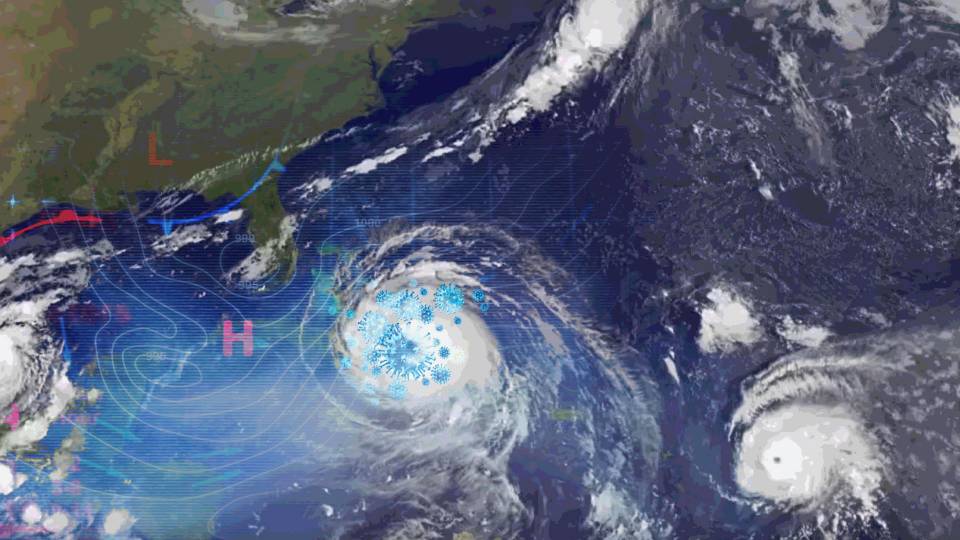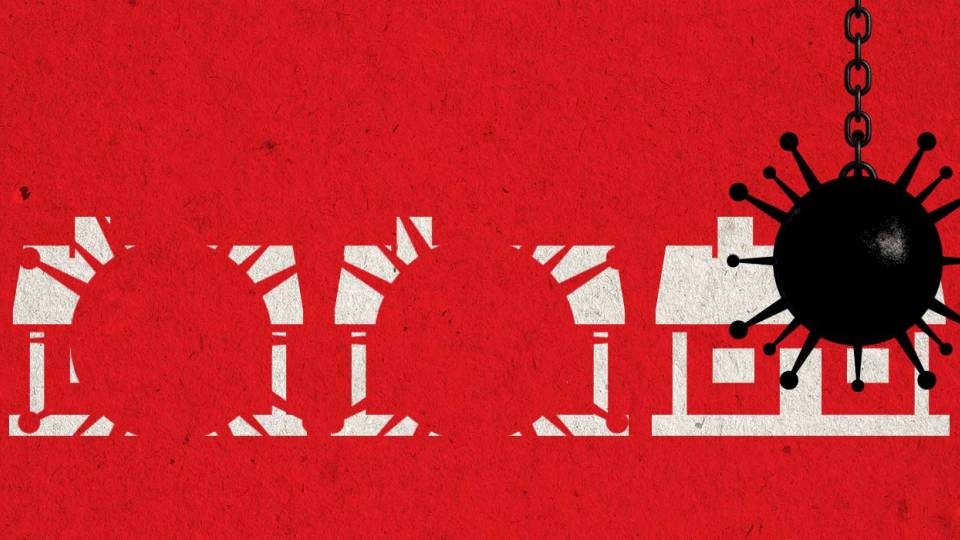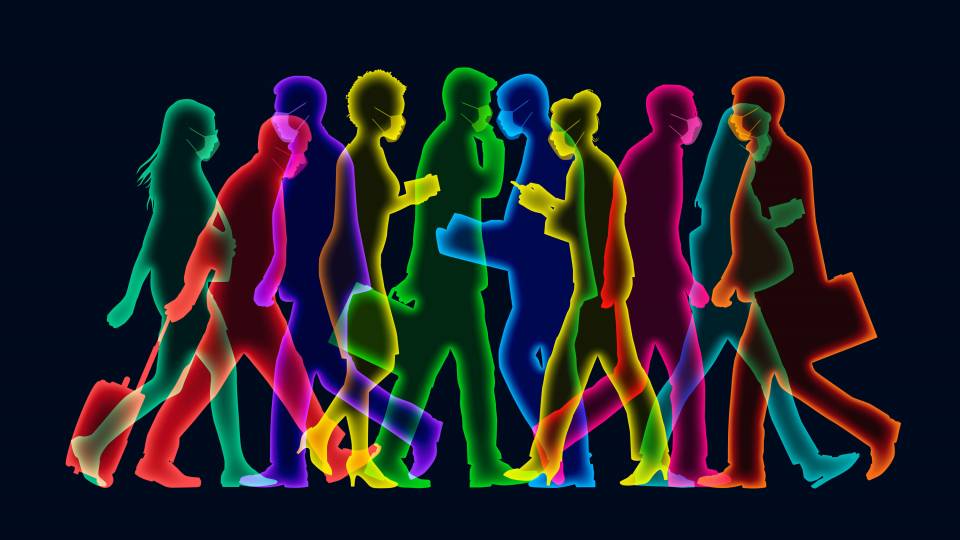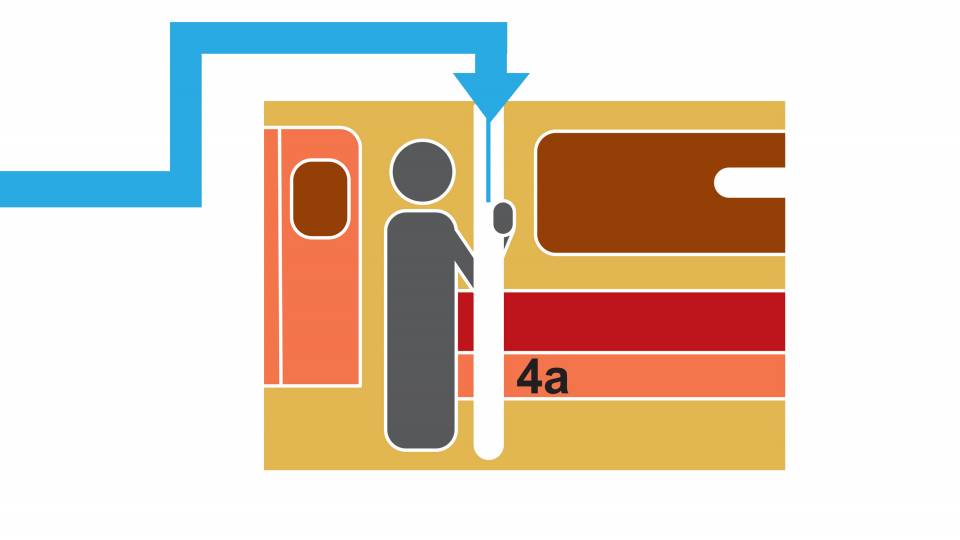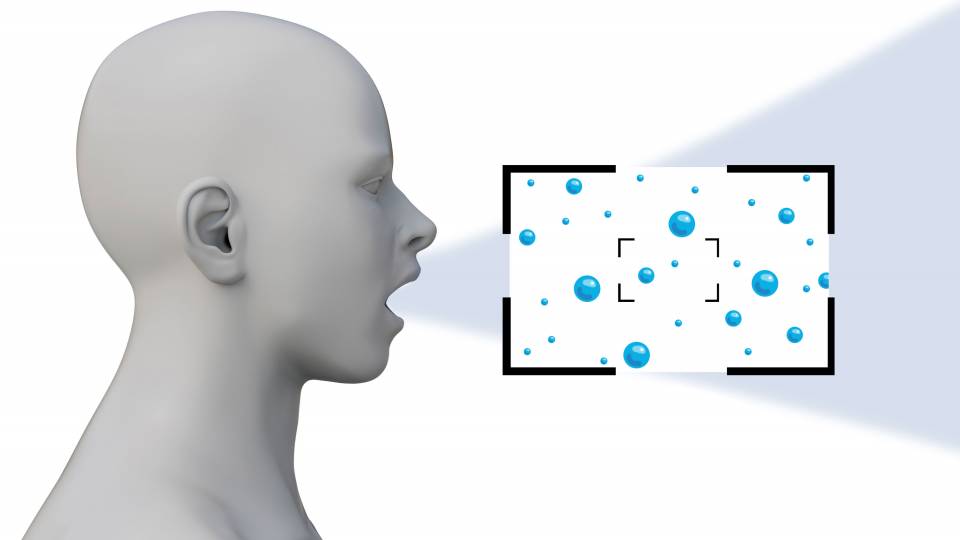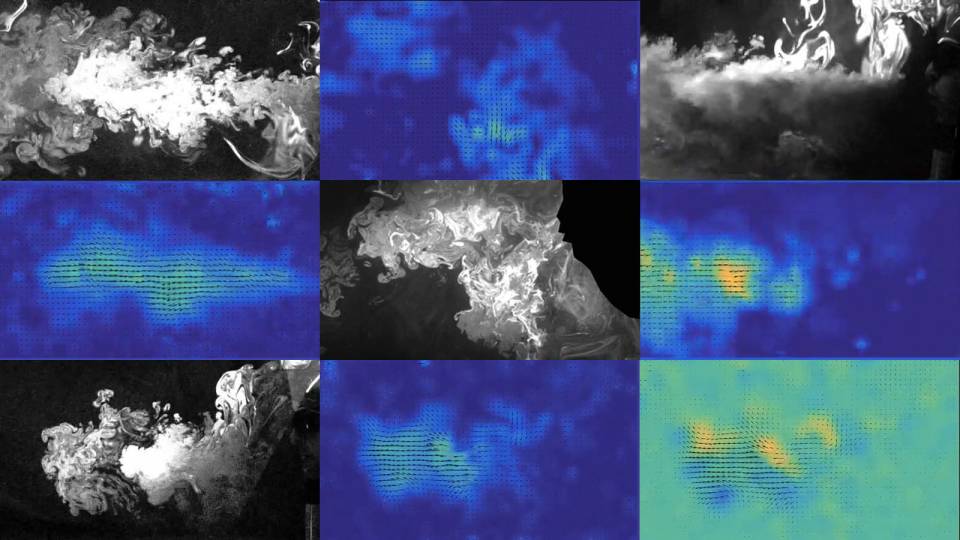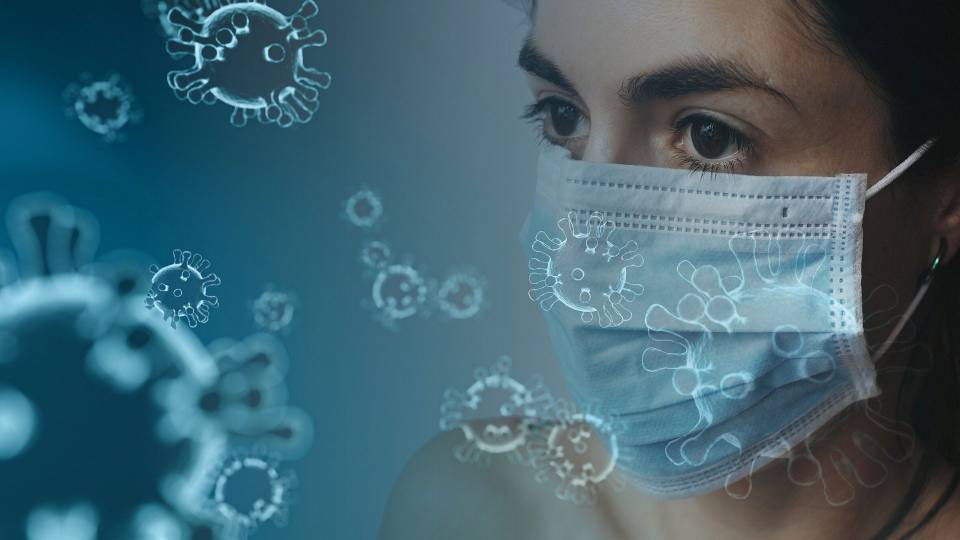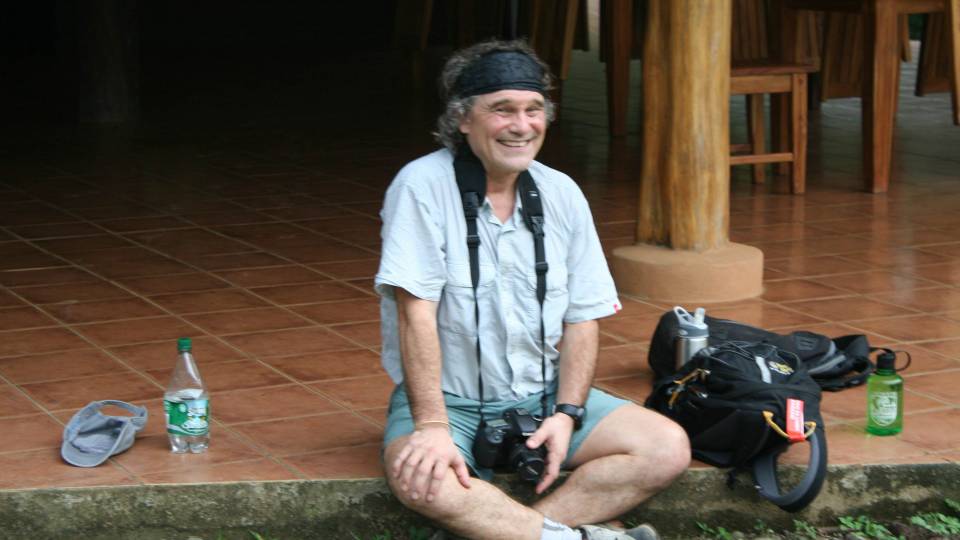Caroline Bartman
Catching COVID-19 isn’t all-or-nothing, says virus researcher Caroline Bartman in the latest episode of Princeton University’s “We Roar” podcast(Link is external). Instead, it’s more like a poison: while a tiny amount of most toxins might just make you queasy, a heaping spoonful would be deadly. And like lead poisoning from old pipes, the dose accumulates over time.
Scientists refer to this as a “viral dose” or “viral load.” Viruses come in tiny increments known as virus particles, and the more of those we’re exposed to, the higher our viral dose, and the worse off we are. It’s a concept well known in the virology community, but one that most people had never heard of before the coronavirus pandemic.
So Bartman — and her boss Joshua Rabinowitz(Link is external), a professor of chemistry and the Lewis-Sigler Institute for Integrative Genomics — decided to bring it into the public discourse. They wrote an op-ed for the New York Times(Link is external), published April 1, explaining the concept of the viral dose.
“As with any other poison, viruses are usually more dangerous in larger amounts,” Bartman and Rabinowitz wrote. “Small initial exposures tend to lead to mild or asymptomatic infections, while larger doses can be lethal.”
Viral dose is especially relevant as states move to reopening, Bartman says in the podcast. “In that context, where people are encountering each other and are together in the workplace, we want to do that in a thoughtful way that minimizes these high-dose exposures — so things like cleaning surfaces very often, and maintaining social distancing even when you are in the workplace, and maybe even working in shifts [so] if you are exposed to virus, it will tend to be these lower doses of virus that will be less likely to infect you.”
Bartman is not a virologist; she has a Ph.D. in immunology from the University of Pennsylvania, and in her work as a postdoctoral research fellow at the Lewis-Sigler Institute for Integrative Genomics, she has been focusing on how infection changes nutrient use in different organs. But her first research experience was in the HIV lab of Dr. Anthony Fauci, a virologist who has gained national prominence in recent months, and she has maintained an interest in viruses ever since. So when the pandemic led the University to shut down most research labs and switch to online instruction, Bartman offered to do a deep dive into the past 50 years of research on coronaviruses as well as read all of the early work coming out about this novel coronavirus, SARS-CoV-2. She distilled her findings into the op-ed.
“I think it is critical for scientists to communicate with the public, and I think that’s becoming clear in this pandemic,” she says. “All of a sudden, everyone has to be an expert in antibodies and in viruses.”

